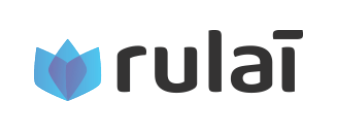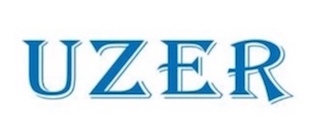DALI: The 2nd MICCAI Workshop on Data Augmentation, Labeling, and Imperfections
With the proliferation of data-intensive methods for supervised learning, the demand for large quantities of annotated data has never been higher. Unfortunately, large-scale collections of medical images are exceptionally challenging to collect and require rare and expensive expertise to annotate. Moreover, medical data are often noisy and imperfect due to missing entries and sensing heterogeneity. A forum for discussing contemporary and practical approaches for dealing with these challenges is urgently needed.
The MICCAI Workshop on Data Augmentation, Labeling, and Imperfections (DALI) aims to provide a venue for researchers to present and discuss their experiences working on these important topics.
Important Dates
- Paper Submission Opens: April 3rd, 2022
- Paper Submission Deadline:
June 27thJuly 2nd, 2022 - Notification to Authors:
July 20thJuly 25th, 2022 - Camera Ready Deadline:
July 30thAugust 3rd, 2022 - Workshop Day: September 22nd, 2022
Call For Papers
Training machine learning systems for image recognition, object detection, and image segmentation often requires a tremendous amount of expert annotated data to reach a high level of accuracy. Having a large number of labeled images helps increase the performance of machine learning models by generalizing better and thereby reducing overfitting. This requirement is even more significant for cutting-edge learning architectures such as vision transformers. As a result, the most popular benchmark datasets for general image recognition tasks have tens of thousands to millions of images.
Unfortunately, obtaining such vast amounts of labeled data is very challenging in the medical imaging domain due to costly annotation by domain experts and the lack of high-quality anonymized data out of privacy concerns. Furthermore, there are unique challenges to collecting annotated medical datasets. For instance, although hard to obtain, examples of rare pathological conditions are extremely important for an accurate representation of the data distribution. Moreover, there are often variations among experts who provide labels, especially for conditions that human experts are most confused about and need help the most.
The goal of this workshop is to bring together and create a discussion forum for researchers in the MICCAI community, including those i) who are interested in the rigorous study of medical data as it relates to machine learning systems, ii) who are developing and promoting novel directions of research in such techniques, iii) who would like to contribute benchmark datasets, open challenges, and tasks that enable fair comparisons among existing and new techniques, and iv) who are applying such techniques to improve the performance of medical image computing systems. The workshop will have invited speakers presenting popular and emerging data augmentation and contemporary approaches for learning from small and noisy medical data. The workshop welcomes submissions that present new ideas, new results, new datasets, as well as discussion and evaluation of existing approaches. The topics of interest include but are not limited to:
- Training and evaluation with noisy or uncertain labels
- Data annotation tools and practices
- Synthetic data for medical image analysis
- One-shot/few-shot learning
- Active learning
- Semi-, weakly-, self-supervised learning
- Deep learning for small, noisy and imperfect data
- Domain adaptation/generalization
- Erroneous label detection
- Data curation
- Principles and/or case studies of annotated datasets and benchmarks
- Anonymization, PHI detection
- Other related topics
Submissions to our workshop will be managed using the same platform as the main MICCAI conference, using the Microsoft CMT. Workshop paper submission website is at: https://cmt3.research.microsoft.com/DALI2022
DALI workshop will employ the same reviewing standards as the main conference. DALI workshop paper submissions should be anonymized in order to accommodate a double blind review. Papers should be formatted using LaTeX or MS Word templates available at Lecture Notes in Computer Science. Manuscripts should be up to 8-pages (text, figures and tables) plus up to 2 pages of references. In submitting a paper, authors implicitly acknowledge that no paper of substantially similar content has been or will be submitted to another conference or workshop until the decisions have been made by our workshop. Supplemental material submission is optional, which may include:
- Videos of results that cannot be included in the main paper
- Anonymized related submissions to other conferences and journals
- Appendices or technical reports containing extended proofs and mathematical derivations that are not essential for the understanding of the paper
Contents of the supplemental material should be referred to appropriately in the paper and that reviewers are not obliged to look at it.
Program
Keynote Speakers
- Yefeng Zheng, Tencent Jarvis Lab, China; talk info
- Daniel Rueckert, Technical University of Munich, Germany and Imperial College London, UK; talk info
- Ehsan Adeli, Stanford University, USA; talk info
- Vishal M. Patel, Johns Hopkins University, USA; talk info
- Zhen Li, The Chinese University of Hong Kong, Shen Zhen, China; talk info
Panelists
- Chen (Cherise) Chen, Imperial College London, UK
- Lequan Yu, University of Hong Kong, Hong Kong
- Kelvin Wong, Houston Methodist Hospital, USA; Bio
Click to see → Full Program
People
Co-Chairs
- Hien V. Nguyen, University of Houston, USA;
- Sharon Xiaolei Huang, The Pennsylvania State University, USA;
- Yuan Xue, Johns Hopkins University, USA;
Advisory Board
- Dimitris N. Metaxas, Rutgers University, USA
- Stephen Wong, Houston Methodist Hospital, USA
- Nicholas Heller, University of Minnesota, USA
- S. Kevin Zhou, University of Science and Technology, China
- Jia Wu, MD Anderson Cancer Center, USA
- Ehsan Adeli, Stanford University, USA
Program Committee
- Amogh Subbakrishna Adishesha, The Pennsylvania State University
- Ti Bai, UT Southwestern Medical Center
- Weidong Cai, University of Sydney
- Nicha Dvornek, Yale University
- Christoph M. Friedrich, University of Applied Sciences and Arts Dortmund
- Michael Goetz, German Cancer Research Center
- Nicholas Heller, University of Minnesota
- Mahdi Hosseini, University of New Brunswick
- Edward Kim, Drexel University
- Xiao Liang, UT Southwestern Medical Center
- Kefei Liu, University of Pennsylvania
- Haomiao Ni, The Pennsylvania State University
- Hui Qu, Adobe Inc.
- Emanuele Trucco, University of Dundee
- Jiarong Ye, The Pennsylvania State University
- Chenyu You, Yale University
- Pengyu Yuan, University of Houston
- Samira Zare, University of Houston
- Xingyu Li, University of Alberta
- Chen Yang, City University of Hong Kong
- Gilbert Lim, National University of Singapore
- Luyang Luo, The Chinese University of Hong Kong
- Yubo Fan, Vanderbilt University
- Zuhui Wang, Stony Brook University
Sponsors
Prizes for best paper and best paper honorable mention awards are sponsored by Rulai, Uzer and United Imaging


